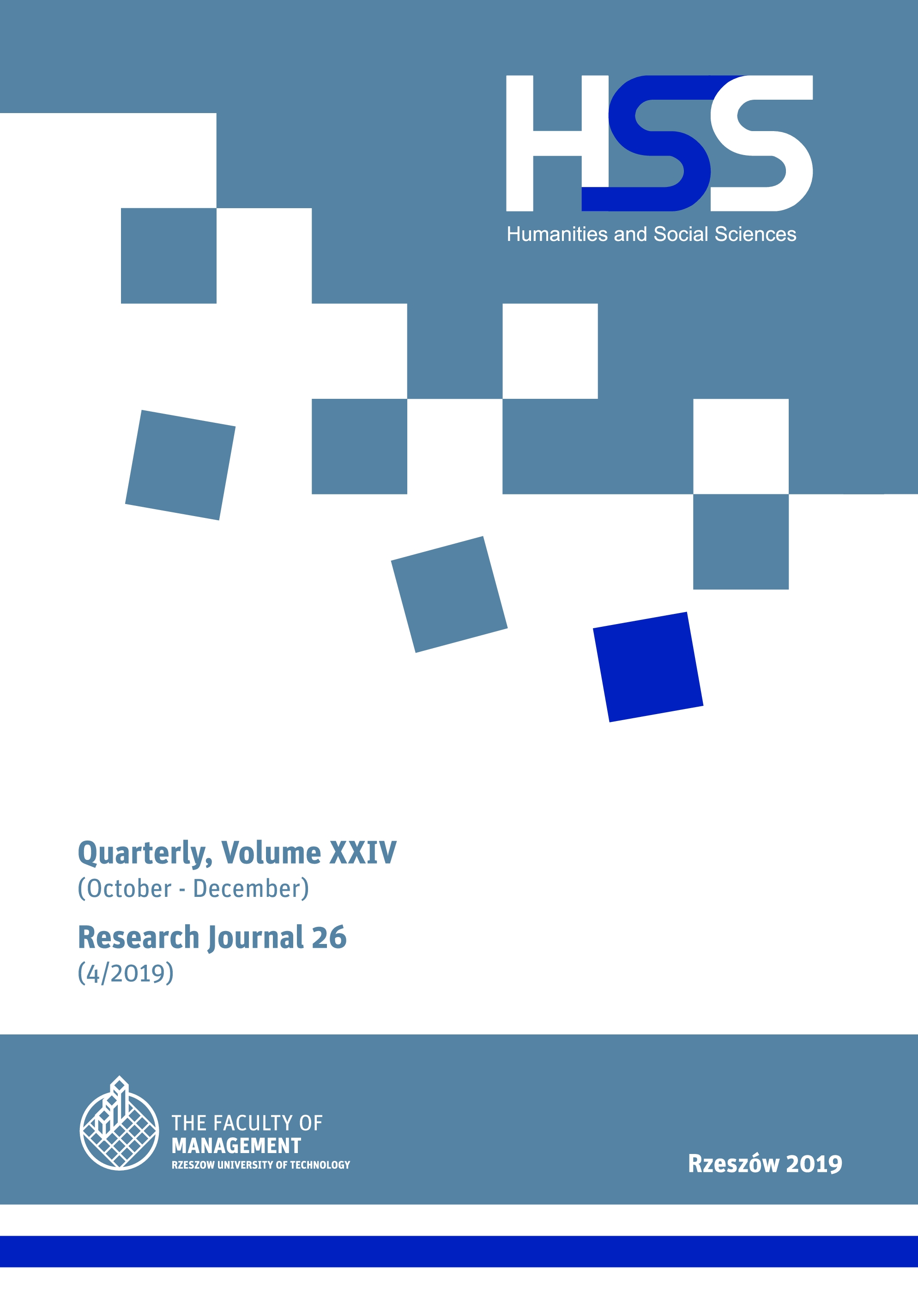Abstract
The paper addresses the issue of complexity of legal communication English in the context of its stylistic variantivity. The research aimed at establishing whether the variable of genre and selected sociolinguistic factors affect the grammar of legal texts, and specifically the quantitative distribution of verbal structures. The analysis fits in the paradigmatic approach to generic and sociolinguistic studies, where the distribution of discrete units is presented in quantitative terms. The operationalisation of the research involved the identification of the relevant linguistic material in the corpus, its statistical processing and conducting relevant R analysis which was to unveil potential correlations. The findings show that the legal texts making up the corpus are not stylistically homogenous; the varied provenance of the source texts (from a diatopic and diachronic perspective, and in terms of genre profile) affects the stylistic structure/grammar of the texts; the same grammatical categories tend to be discriminative for various categories of texts. The strong point of the research lies in addressing legal communication within the realm of secondary genres, which – for practical reasons – are underrepresented in legilinguistic studies, constituting a significant yet problematic domain from an intra- and inter-linguistic perspective. The findings obtained in the analysis and patterns emerging will be of practical use in multi-national, institutional environments, where English is used as a lingua franca in corporate communication. Moreover, the conclusions drawn are a good starting point for studies on legal translation in professional settings, including the didactic perspective.
References
Baker, M. (2004). A corpus-based view of similarity and differernce in translation. "International Journal of Corpus Linguistics", No. 9.
Bhatia, V. (2006). Legal genres [In:] Brown, K., ed., Encyclopedia of Language and Linguistics. Oxford: Elsevier.
Bhatia, V.K. (2017). Critical Genre Analysis. Investigating interdiscursive performance in professional settings. New York: Routledge.
Biel, Ł. (2014). Lost in the Eurofog: the Textual Fit of Translated Law. Peter Lang.
Ebeling, J. (1998). Contrastive linguistics, translation , and parallel corpora. "Meta", No. 43(4). DOI: 10.7202/002692ar.
Gotti, M. (2005). Investigating Specialised Discourse. Bern: Peter Lang.
House J. (2013). English as a lingua franca and translation. "The Interpreter and Translator Trainer", No. 7(2).
Lackstron, J., Selinker, L. & Trimble, L. (1973). Technical Rhetorical Principles and Grammatical Choice. "TESOL Quarterly", 7.
Legallois, D., Charnois, T. & Meri Larjavaara. (2018). The balance between quantitative and qualitative literary stylistics: how the method of “motifs” can help. [In:] Legallois, D., Charnois, T. & Larjavaara, M., eds., The Grammar of Genres and Styles: From Discrete to Non-Discrete Units. Berlin: De Gruyter Mouton.
Lemmens, K. (2011). The slow dynamics of legal langauge: Festina lente? "Terminology", No. 17(1).
Longerée, D. & Mellet, S. (2018). Towards a topological grammar if genres and styles: a way to combine paradigmatic quantitative analysis with a syntagmatic approach [In:] Legallois, D., Charnois, T. & Larjavaara, M., eds., The Grammar of Genres and Styles: From Discrete to Non-Discrete Units. Berlin: De Gruyter Mouton.
Peruzzo, K. (2017). Legal system: an additional variable in the analysis of short-term diachronic evolution of legal terminology. "International Journal of Legal Discourse", No. 2(2).
Pontrandolfo, G. (2015). Investigating judicial phraseology with COSPE: A contrastive corpus-based study [In:] Fantinuoli, C. & Zanettin F., eds., New Directions in Corpus-based Translation Studies. Berlin: Language Science Press.
Więcławska, E. (2018). Towards the establishment of genre distinctions of company legal registration proceedings. "Komunikacja Specjalistyczna", No. 16.
Więcławska, E. (2019). Field-specific conventions in the translation of company law documentation for court proceedings. "Studies in Logic, Grammar and Rhetoric. Studies in Logic, Grammar and Rhetoric", No. 58(71).
Williams, C. (2005). Tradition and Change in Legal English. Vernal Constructions in Prescriptive Texts. Bern: Peter Lang.


